How to Handle Tenant Privacy and Entry Laws in Florida
Tenant privacy and entry laws are essential elements of property management in Florida. Landlords must respect their tenants’ rights while also ensuring the property is well-maintained. This guide will provide a detailed overview of these laws, offering actionable insights, examples, and best practices for property owners and managers.
Understanding Tenant Privacy Rights in Florida
Florida law ensures that tenants have a right to privacy in their rental units, but this right is not absolute. Landlords must balance respecting tenant privacy with the need to maintain, inspect, and show the property. The Florida Residential Landlord and Tenant Act outlines the boundaries for this balance, and understanding it is critical for landlords.
The Right to Quiet Enjoyment
The right to quiet enjoyment refers to a tenant’s ability to live in their rental unit without unnecessary interference. This includes the tenant’s right to privacy, freedom from disturbances, and control over who enters their space. As a landlord, violating this right could result in legal action, so it’s essential to adhere to the guidelines for entry and privacy.
What Is Considered Invasion of Privacy?
Invasion of privacy occurs when a landlord disregards the tenant’s right to privacy by entering the rental property without proper notice, consent, or valid reason. Common examples include:
- Entering without notice or permission.
- Entering at unreasonable hours without valid cause.
- Sharing tenant information without consent.
Violating privacy rights can lead to tenant complaints, legal disputes, or even the termination of the lease agreement.
Florida Landlord’s Right to Enter Rental Property
While tenants have a strong right to privacy, landlords are permitted to enter the rental property under specific circumstances. Florida law dictates when and how landlords can legally enter a rental unit.
Valid Reasons for Entry
According to Florida Statutes, a landlord can enter a rental property for several reasons, including:
- Maintenance or Repairs: Landlords must ensure the property remains in good condition. This includes entering for repairs, inspections, or routine maintenance.
- Emergency Situations: In emergencies such as a burst pipe, fire, or flooding, landlords may need to enter the property without notice to protect the property or ensure tenant safety.
- Inspection: Regular inspections may be necessary to ensure the tenant is maintaining the property and to check for issues that could affect the property’s value.
- Showing the Property: If a tenant is moving out or the lease is near its end, the landlord may show the property to potential renters or buyers.
Providing Proper Notice
Florida law mandates that landlords provide tenants with notice before entering the rental property. The notice requirements vary depending on the reason for entry:
- 24-Hour Notice: For non-emergency situations like inspections or maintenance, landlords must give tenants at least 24 hours’ written notice. This can be done via email, text message, or physical notice.
- Emergency Entry: In cases of emergencies, no notice is required. However, it is best practice for landlords to attempt to notify tenants when possible, explaining the reason for the entry after the fact.
Best Practices for Handling Entry and Privacy
Respecting tenant privacy and ensuring compliance with Florida’s laws is essential for building trust and preventing legal issues. Here are some practical tips for landlords:
1. Be Transparent with Tenants
Good communication is key to maintaining a positive relationship with tenants. Always be clear about why you need to enter the property and provide ample notice. If possible, discuss entry times and dates in advance to avoid misunderstandings.
2. Keep Records of All Notices
Document all communication related to property entry. Keep copies of written notices, emails, or text messages sent to tenants. This documentation will serve as evidence if a dispute arises.
3. Respect Tenant Schedules
While landlords have the right to enter the property, tenants have the right to enjoy their home without disruption. Be mindful of their schedules and try to coordinate entry times that minimize inconvenience. Avoid entering the property during off-hours unless it’s an emergency.
4. Plan for Routine Inspections
Routine inspections should be part of your property management strategy. Plan these well in advance, providing tenants with notice as required by law. This practice helps maintain the property while also ensuring compliance with privacy laws.
5. Handle Emergencies Quickly and Professionally
Emergencies require swift action. If you need to enter the property due to an emergency, make sure you act quickly to prevent further damage. Once the situation is under control, notify the tenant immediately and explain the actions taken.

Get a Free Rental Analysis
Want to know how much your home will rent for? We’ll send you a free rental report!
Tenant’s Right to Deny Entry
While landlords have the right to enter the rental property under specific conditions, tenants also have certain rights when it comes to denying entry. However, the circumstances under which a tenant can deny entry are limited by Florida law.
When Can a Tenant Deny Entry?
A tenant can deny entry if:
- No Notice Was Given: If a landlord fails to provide proper notice (24 hours for non-emergency situations), the tenant has the right to refuse entry.
- No Valid Reason for Entry: If the landlord does not have a valid reason for entering, such as performing maintenance or repairs, the tenant can legally deny access.
- Entry Outside of Reasonable Hours: If the landlord attempts to enter the property at unreasonable hours (such as late at night or early in the morning without prior agreement), the tenant may refuse entry.
What Happens if a Tenant Denies Entry?
If a tenant denies entry without a valid reason, the landlord may seek legal action to enforce their rights. In Florida, this could lead to a breach of lease claim or, in severe cases, an eviction. However, before taking any action, landlords should first try to resolve the issue through communication and compromise.
Disputes Over Privacy and Entry
Tenant privacy and entry disputes can arise if either party feels their rights have been violated. These disputes can result in strained relationships or legal consequences if not handled properly. Below are common causes of disputes and strategies for resolving them.
Common Causes of Disputes
- Unclear Communication: If the landlord fails to provide adequate notice, the tenant may feel their privacy has been violated. Similarly, tenants might fail to inform landlords of their schedules or availability, leading to misunderstandings.
- Failure to Maintain the Property: A tenant may refuse entry if they feel the landlord is not performing maintenance in a timely or professional manner. Tenants may also be hesitant about letting the landlord in if they don’t trust that their space will be respected.
- Disputes Over Emergency Entry: Emergencies are an unavoidable part of property management. However, tenants may feel uncomfortable or violated if a landlord enters the property in an emergency without proper communication or explanation.
How to Resolve Disputes
- Clear Communication: Keep lines of communication open with tenants at all times. If a dispute arises, engage in respectful discussions to understand each other’s concerns. Always be transparent about the reason for entry and try to accommodate the tenant’s schedule whenever possible.
- Offer Compensation: If the entry causes significant inconvenience to the tenant, offering a small compensation (such as reducing rent for the month) can help maintain a good relationship.
- Mediation: In some cases, mediation may be necessary to resolve conflicts. Professional mediators can help facilitate an agreement that benefits both parties, avoiding lengthy and costly legal proceedings.
- Legal Action: If the dispute cannot be resolved amicably, it may be necessary to seek legal advice or file a complaint in small claims court. This should be considered as a last resort.
Best Practices for Managing Tenant Privacy and Entry
While understanding the legal framework is essential, practical steps can help landlords minimize disputes and maintain a respectful relationship with tenants. The following best practices can assist in managing privacy and entry concerns effectively.
1. Establish Clear Lease Agreement Terms
A comprehensive lease agreement should outline the landlord’s right to enter the property, the reasons for entry, and the procedures for giving notice. Ensure that tenants are aware of their rights and responsibilities under the lease. For example, the lease should specify the 24-hour notice requirement and the procedures for emergency entry.
2. Provide Multiple Communication Channels
Allow tenants to reach you via multiple communication channels, such as email, phone, or a property management portal. This will make it easier for tenants to inform you of their availability and allow you to send notices more efficiently.
3. Respect Tenant Schedules
Whenever possible, work with your tenants to schedule entry times that are convenient for them. If a tenant is unable to allow entry at a specific time, offer alternate dates and times. The more flexible you are, the less likely conflicts will arise.
4. Regularly Inspect the Property
Conduct routine property inspections (with proper notice) to ensure that the unit is in good condition. These inspections can prevent larger issues from developing, reducing the need for emergency entries. This proactive approach can help maintain tenant trust and reduce the frequency of entry-related conflicts.
5. Handle Emergencies Professionally
In emergency situations, ensure that your actions are swift but also professional. After the emergency is addressed, notify the tenant of what happened and explain the reason for the entry. Offering an apology, if necessary, can help preserve the tenant’s trust in you as a landlord.
6. Follow Legal Procedures for Entry
Stay up to date with Florida’s landlord-tenant laws regarding entry and privacy. For example, ensure you are following the proper procedures for providing notice, entering during reasonable hours, and respecting the tenant’s space. Ignoring legal requirements can lead to fines, lawsuits, or loss of reputation.

Special Situations Requiring Entry
There are certain scenarios where a landlord may need to enter the rental property that require additional consideration. These situations can be tricky, and it’s essential to follow the law carefully to avoid conflicts or legal repercussions.
1. Entry for Repairs and Maintenance
Routine repairs and maintenance are a common reason for landlords to enter rental properties. However, it’s essential to understand the requirements for doing so:
- Scheduling Repairs: As per Florida law, landlords must provide tenants with at least 24 hours’ notice before entering for non-emergency repairs. This notice can be written or electronic (such as via email or text).
- Tenant’s Consent: In some cases, the tenant may deny entry or be unavailable for the scheduled repair time. It’s important to remain flexible and try to find a mutually agreeable time.
- Emergency Repairs: If the repair is an emergency (e.g., a broken water pipe or electrical hazard), the landlord can enter without notice. However, notifying the tenant as soon as possible is still best practice.
2. Entry During Property Showings
When a property is up for sale or rent, the landlord may need to show the unit to prospective buyers or new tenants. However, Florida law still requires proper notice and consideration of tenant privacy.
- 24-Hour Notice: Landlords must provide 24 hours’ notice before showing the property. If the tenant is on a month-to-month lease, landlords may show the property during the notice period.
- Respecting Tenant Privacy: When showing the property, be mindful of the tenant’s privacy. Avoid entering rooms where the tenant keeps personal belongings unless necessary for the showing. Also, try to schedule showings at times that are convenient for the tenant to minimize disruption.
3. Entering for Property Inspections
Landlords may need to inspect the property to ensure it’s being maintained properly, especially at the end of a lease. These inspections are critical but must be conducted in accordance with Florida law.
- Notice Requirements: Landlords must provide written notice of at least 24 hours before entering for an inspection.
- Frequency of Inspections: Regular inspections can help prevent maintenance issues from escalating, but landlords must strike a balance. Over-inspecting the property may be seen as an invasion of privacy, so it’s important to limit inspections to necessary times.
4. Tenant Abandonment
If a tenant abandons the property, the landlord may need to enter to assess the situation. However, Florida law requires the landlord to follow specific procedures before considering the property abandoned:
- Abandonment Notification: The landlord should first attempt to contact the tenant. If the tenant does not respond and hasn’t paid rent, the landlord may consider the property abandoned after 15 days of unpaid rent.
- Entry Process: The landlord must provide the proper notice of entry and cannot immediately dispose of the tenant’s belongings without following Florida’s abandonment procedures.
Preventing Privacy Violations
To avoid legal issues and tenant dissatisfaction, landlords should adopt a proactive approach to respecting tenant privacy. Here are some advanced strategies for ensuring compliance with privacy and entry laws.
1. Implement Clear Communication Channels
Good communication is essential to preventing misunderstandings and legal issues. Consider setting up an online tenant portal where tenants can submit maintenance requests, schedule entry times, and communicate with the landlord. Having a centralized communication platform ensures both parties have a record of requests, notices, and agreements.
2. Use a Standardized Entry Procedure
Establish a standard operating procedure (SOP) for entering rental units. This should include:
- A written notice template for informing tenants of entry.
- A clear schedule for regular maintenance and inspections.
- Emergency protocols, including the steps for notifying tenants post-entry in case of emergencies.
By having a standardized procedure, you reduce the chances of violating tenant privacy laws and make the entry process predictable and transparent for tenants.
3. Consider Tenant Preferences
Whenever possible, ask tenants about their preferred times for entry. Respecting their schedules goes a long way in maintaining a positive relationship. It also helps ensure tenants feel their privacy is valued. This is particularly important when you need to enter for reasons like repairs, inspections, or showings.
4. Provide Tenant Education
Ensure that tenants understand their rights and responsibilities regarding privacy and entry. Including clear provisions in the lease agreement about when and why a landlord can enter the property can help set expectations from the outset. If a dispute arises, referencing the lease agreement can help resolve the issue quickly and amicably.
5. Document Everything
Maintain records of all communications and notices related to property entry. This includes notices, emails, text messages, or physical documentation that you’ve sent to the tenant about entry times or the reasons for entering. These records will serve as a critical defense if a legal dispute arises.
When to Seek Legal Counsel
Despite best efforts, there may be times when disputes become too complicated to handle on your own. In such cases, it’s crucial to seek legal advice. A qualified attorney specializing in landlord-tenant law can provide guidance on:
- Handling complex entry situations.
- Navigating tenant disputes over privacy and entry.
- Understanding local regulations that may affect property management in specific cities or counties in Florida.
- Defending your rights in court if necessary.
Key Takeaways
- Respect Tenant Privacy: Landlords must adhere to Florida’s laws regarding tenant privacy and entry. Always provide proper notice and have a valid reason for entering the property.
- Stay Transparent: Communicate clearly with tenants about entry schedules and any repairs or inspections that need to be made.
- Flexibility Is Key: Work with tenants to find times that minimize inconvenience. Offering compensation when needed can maintain good relationships.
- Know the Law: Familiarize yourself with Florida’s landlord-tenant laws to avoid legal pitfalls and protect your rights as a property owner.
By following these guidelines, landlords can ensure they respect tenant privacy while maintaining the integrity and condition of their rental properties. These practices help foster trust and cooperation, ultimately leading to a smoother, more successful rental experience for both landlords and tenants.



